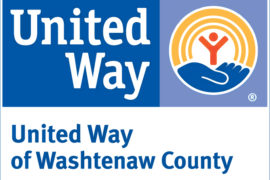On Monday, Dec. 9, Supt. Chris Timmis, Athletic Director Mike Bavineau and CFO Sharon Raschke presented a proposal from the Ad Hoc Athletics Committee to restructure the DCS Athletics program. Following the presentation, discussion was opened up to questions from the audience.
- When all the self-funded sports move under the school umbrella, will their respective booster clubs move as well?
That’s what we’d like. We’d like to have all the different accounts that are out there under our umbrella so that we know what’s being spent and purchased. There will be some transition; we have to work out a plan.
- What has been the primary driver behind this restructuring proposal?
There are two drivers. We started the process to make sure that our program was Title IX compliant and equitable for our athletes. When self-funded sports began, the District promised teams that once they could show sustainability, then the team could become school-supported. And 15-20 years later, it never did.
We also have parents wondering what is school-funded and what is self-funded. Why one sport costs $250 and one costs $600, why one sport gets bussed and another doesn’t, etc. We are asked what we spend on every sport; we know what the District spends, but not the total of what has actually been spent by all sports. We’re always trying to chase down what’s being spent, and the only way to fix it is to completely overhaul it. We want to be as fair as we can.
- My concern is for those that struggle financially, the $250 fee may leave some athletes behind because they’ll be too proud to apply for assistance. It’s great that Free and Reduced Lunch students will automatically get scholarships, but what about the kids just above that income level?
We do have processes in place for that, the same as for Free and Reduced Lunch. Not everyone comes forward to apply for Free and Reduced Lunch, and so we do have a way that administration or any other staff (i.e. guidance counselor) can identify someone who needs additional support. It doesn’t just have to be a parent walking into the AD’s office saying they need a scholarship.
Some of the people who know the most about the athletes is the coaches. I (Bavineau) have coaches come to me saying that a student’s family is struggling, is there anything we can do for them? And we can. We’ve had parents ask if they can set up a payment plan. Absolutely. We’re not trying to keep kids from playing sports by pricing them out.
- It sounds like I’m going to have to jump through some hoops to get reimbursed after the $1000 family maximum.
No, it won’t be difficult. Once you pay over $1000, you’ll fill out a form and be reimbursed. It not like you have to apply for the consideration to be reimbursed. It will be easier than the current system.
- I think the single tier $250 is great, and will make things much easier for all the reasons enumerated. But, there are costs above the $250 fee to participate in certain sports. So, say a student gets the $250 full scholarship for a sport; what mechanism will be in place to cover the additional costs that go along with that sport for someone needing assistance? Examples: team pictures, matching sweatpants, etc.
That’s one of the reasons we want all the sports under the Athletics umbrella, so we can see what’s actually being spent by each team. We have purchasing policies in place, but the problem is the implementation of these policies when all sports aren’t under the Athletics umbrella.
Team funds could be used for those additional costs. If parents decide they want to purchase something extra for their team, they would collect the money and deposit with the school, then purchase the items.
- What is necessary to put the team on the field? Technology, referees, safety equipment, etc. Parents need a list of what is provided for the pay to participate fee vs. any additional costs for each sport, perhaps on the Athletics website.
That is a grayer area – what is a need vs. a want? How much are parents or a team going to go above what is truly needed to play a sport?
- That brings up an issue of booster money and equity between sports – if one sport gets something and another sport doesn’t, isn’t that an equity issue?
That’s why we need to bring all the sports in, so we can see what’s being spent and assure that it’s being spent appropriately and consistently.
- Are DCS staff members paid more to coach than non-DCS staff coaches?
No, they are all paid equitably, just through different entities. DCS staff is paid through the District as school employees, and outside coaches are paid through EduStaff.
- Are coaches evaluated yearly?
We have ongoing conversations with coaches throughout the year in order to evaluate the program. We don’t necessarily give raises just because a coach’s team won, but for seniority and experience.
If you work for the school, you’ll be evaluated. If you work for EduStaff, they typically evaluate their people and we give feedback on how things are going.
- Are coaching salaries based on the individual sports?
Most of the schools researched had a tiered system for paying their coaches based on the amount of time spent at practice, games, etc. which we took into consideration. So yes, it depends on the sport and their season time requirements.
There isn’t a salary scale, there is a percentage for each of the coaching positions. The proposal sets coaches pay at 1%=$500, and here are some discretionary percentages that can be applied for experienced coaches.
- What is the difference between DCS employees and EduStaff employees in terms of liability insurance?
District employees are protected as school employees, and EduStaff employees are protected through EduStaff’s liability insurance.
(Comment: As a self-funded sport, we found EduStaff’s liability wasn’t enough and we decided to take out extra insurance to protect our coaches. I don’t think it’s reasonable to ask a non-District employee to only be covered by EduStaff’s insurance.)
- What is the transparency of the Athletics program’s funds?
The AD can pull financial reports whenever needed, and the District reports financial updates to the Board of Education several times each year. We have line items for student activity revenue, student activity expenditure, gate sales, etc.
- How is it determined how many coaches are needed for each sport? It seems like some sports have many, many coaches, including specialty coaches.
There is a general structure for how many coaches are needed for each sport based on the nature of that sport. We look at what’s manageable and what’s safe for the athletes – for example, Middle School track could have 150 kids sign up, so they would definitely need more coaches than the norm to manage a team of that size. There is flexibility in the coaching schedule to add coaches as needed.
- Is the coaching schedule available to the public?
It’s still being nailed down, and we are waiting to see the result of the proposal.
Any coach that is needed by a sport is on the schedule. Anyone else above that expectation would be a volunteer. No one besides the coaches on the schedule can be paid.
- So Booster groups or sports that are 501c3 will have to be dissolved, and how will that work?
There will be a transition period, and teams/booster groups can continue spending out the money they’ve raised, but booster clubs will not be able to raise new money though their 501c3. Any fundraising money will need to come through the school, and it will be deposited directly into the team’s fund.
(Comment: I see a potential problem with teams who are really good fundraisers, and can raise a lot of money, so you’ll need to address the inequity of booster groups. You can’t overdo sports through boosters and remain in compliance.)
- Do you envision a sit-down with each self-funded sport?
Yes, we will be sitting down with each self-funded sport and booster group to work out the transition details of bringing them in-house.










